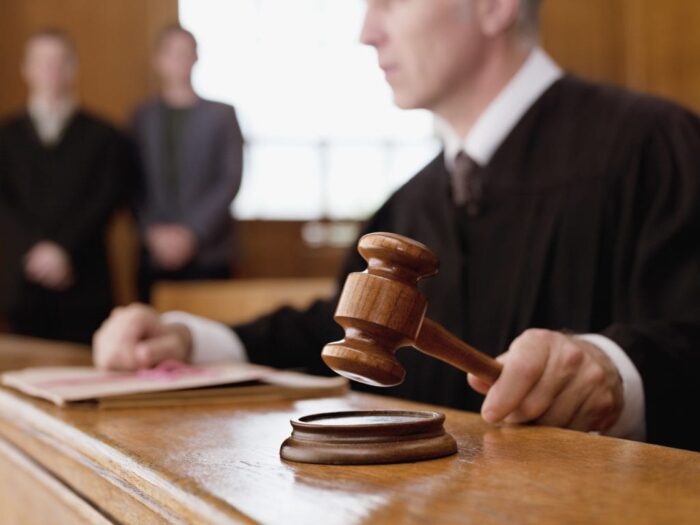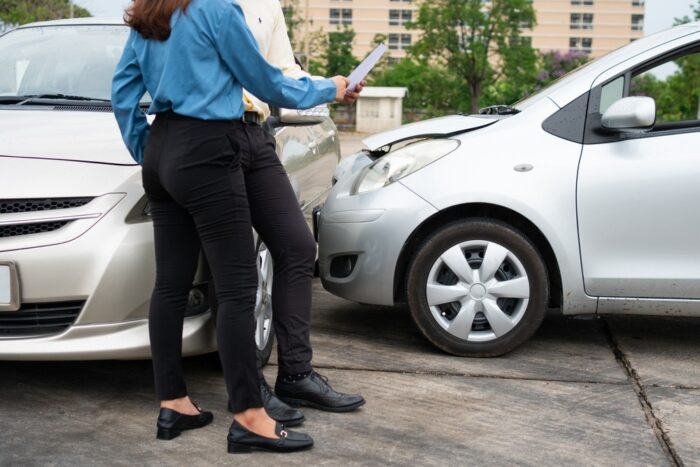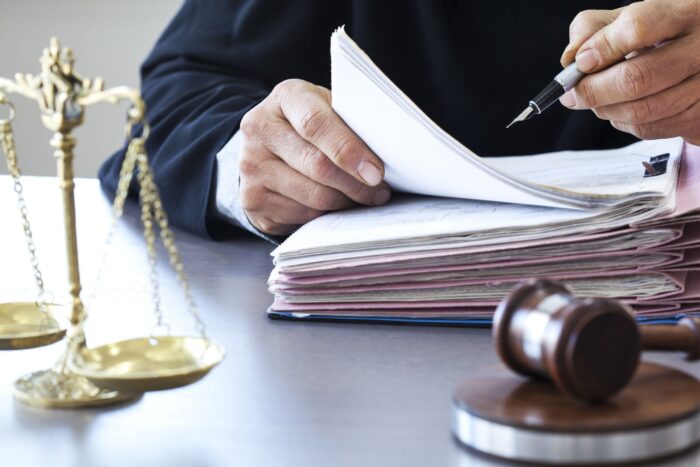
Navigating the aftermath of a car accident can be a complex and daunting process, especially when it comes to handling the insurance claim. Sometimes, despite your best efforts to resolve the claim through the insurance company’s standard procedures, you find yourself headed towards arbitration. This turn of events can feel unexpected and overwhelming, but understanding why your car accident claim is going to arbitration and what it entails can help demystify the process and prepare you for what lies ahead.
Understanding Arbitration
Arbitration is a form of alternative dispute resolution (ADR) that serves as a middle ground between informal negotiations and the formalities of a court trial. It involves a neutral third party, known as an arbitrator, who reviews the evidence, listens to both parties, and then makes a binding decision on the dispute. The process is designed to be quicker, less formal, and often less costly than traditional litigation.

The Path to Arbitration
The journey to arbitration typically begins when negotiations between you (the claimant) and the insurance company (the respondent) reach a stalemate. This impasse can arise from various disagreements, such as the extent of damages, the amount of compensation, or liability issues. When these disputes cannot be resolved through direct negotiation or mediation, arbitration becomes the next step in seeking resolution.
Dispute Over Liability
One of the primary reasons car accident claims proceed to arbitration is a dispute over liability. Determining who is at fault in a car accident can be complex, involving the analysis of accident reports, witness statements, and sometimes expert testimonies. When the parties involved cannot agree on who bears the responsibility for the accident, arbitration provides a platform for an impartial review and decision.
Disagreements on Compensation
Another common trigger for arbitration is disagreement on the amount of compensation. This can include disputes over the cost of repairs, medical expenses, lost wages, and compensation for pain and suffering. Insurance companies may offer a settlement that you deem insufficient based on your damages and expenses. When these differences cannot be reconciled, arbitration offers a way to seek a fair resolution.

Insurance Policy Requirements
Many auto insurance policies include an arbitration clause, which mandates that disputes relating to the claim must be settled through arbitration rather than through the courts. This clause is often invoked when there are unresolved issues after the initial claim process, leading the case to arbitration as per the policy’s terms.
Choosing Arbitration Over Court
There are several reasons why parties might prefer arbitration over taking a dispute to court. The arbitration process is generally faster, less formal, and can be less expensive than a full-blown trial. Additionally, arbitration hearings are private, which can be appealing for those wishing to avoid the public scrutiny of a court case.
Preparing for Arbitration
Preparation is key to success in arbitration. This involves gathering all relevant evidence, including accident reports, medical records, repair bills, and any other documentation that supports your claim. It’s also advisable to consult with a legal professional who can provide guidance on the arbitration process and represent your interests effectively.

The Role of Legal Representation
While not mandatory, having legal assistance for car accidents in arbitration can significantly impact the outcome of your case. An experienced attorney can help you navigate the complexities of the arbitration process, present your case effectively, and advocate on your behalf. They can also assist in selecting a qualified arbitrator and preparing a compelling argument for your claim.
The Arbitration Process
The arbitration process for a car accident claim involves several key steps. It starts with the selection of an arbitrator, who is typically chosen either directly by the parties involved or through an arbitration service. The parties then present their evidence, which can include documents, witness statements, and expert testimonies. After reviewing the evidence and hearing arguments from both sides, the arbitrator makes a decision, which is usually binding and enforceable in a court of law.
Navigating the Emotional Landscape
The arbitration process, while primarily legal and procedural in nature, also involves a significant emotional component for many individuals. Dealing with the aftermath of a car accident can be a stressful and emotionally taxing experience. The added pressure of preparing for and participating in arbitration can exacerbate these feelings. Recognizing and addressing the emotional impact of this process is crucial. Seeking support from family, friends, or professionals can provide the emotional resilience needed to navigate this challenging period.

The Importance of Evidence
The outcome of arbitration heavily relies on the evidence presented by both parties. This emphasizes the importance of meticulous documentation following a car accident. Photos of the accident scene, detailed medical records, receipts for repairs and medical treatments, and any correspondence with the insurance company can all play pivotal roles in the arbitration process. Ensuring that all evidence is organized and readily accessible can significantly influence the arbitrator’s decision.
Understanding Arbitrator Bias
While arbitrators are expected to be neutral, it’s essential to acknowledge the possibility of bias, whether unconscious or due to their background and experiences. Researching potential arbitrators, understanding their history, and choosing someone with a reputation for fairness can mitigate the risk of bias. In some cases, both parties may have the opportunity to agree on the arbitrator, which can help ensure a more balanced and impartial proceeding.
The Final Decision
The arbitrator’s decision is typically final and binding, meaning it cannot be appealed in most cases. This decision will determine the outcome of your claim, including any compensation you are entitled to. Understanding that the arbitrator’s decision is usually the last word on the matter is crucial for setting realistic expectations about the arbitration process.

Moving Forward After Arbitration
Once the arbitrator has made a decision, the parties involved are generally expected to abide by it. If the decision requires the insurance company to pay a certain amount, they are typically given a set timeframe to fulfill this obligation. It’s important to follow up and ensure that all terms of the decision are met.
Closing Thoughts
Arbitration can be a daunting prospect for those unaccustomed to the intricacies of legal disputes. However, with a thorough understanding of the process, careful preparation, and the right support, it can provide a fair and efficient resolution to car accident claims. By approaching arbitration with a well-informed perspective and a strategic mindset, individuals can navigate this process more confidently and increase their chances of a favorable outcome.











